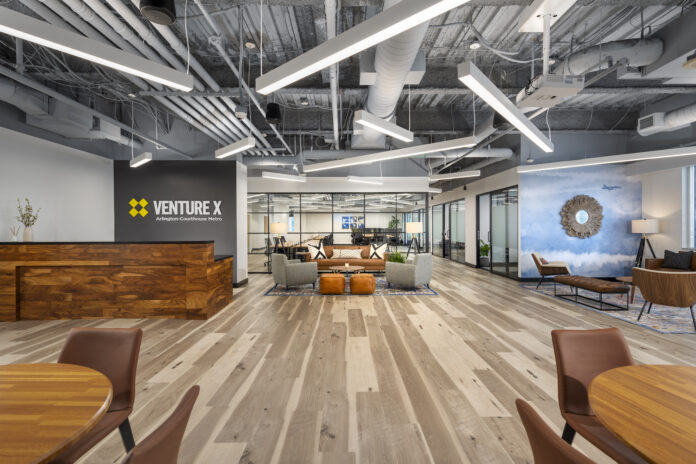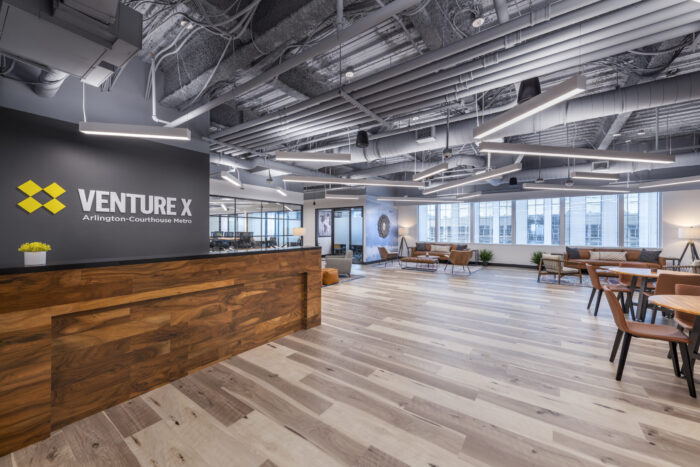Before 2019, the concepts of home office and remote working were unknown concepts to many businesses around the world ― pretty much only multinationals had taken advantage of the opportunity. However, the coronavirus pandemic has fundamentally rewritten the way we think about remote working. New tools and processes were needed, and help came from a surprising place: The flexible office market, redefining itself, has emerged as a truly effective hybrid solution. In this article, we explore the new position of flexible offices.
Pandemic Challenges
In March 2019, all of our lives changed fundamentally. The outbreak of the COVID-19 pandemic affected all walks of life, from bakers to bands, from startup entrepreneurs, to large Fortune 500 companies. Countless companies whose management had previously refused to hear about home office and remote working were forced to implement it in all white-collar positions to ensure business continuity. In large companies where this option was already available, at least the processes and tools were in place to allow employees to work entirely from home.
For the first few months, everyone was happy: Employees saved commuting time and even found it easier to incorporate tasks at home into their daily routines, and businesses saved on office costs and overhead. However, what initially appeared to be an efficient process slowed down, and social life in the workplace was limited to Zoom and other video chat applications — making it increasingly difficult for teams and individuals alike to work effectively.
As the epidemic subsided and vaccinations began, companies came up with different solutions:
- As soon as the epidemic subsided and government regulations permitted, traditional businesses resumed mandatory office presence.
- For some positions, companies allowed full home office arrangements, meaning employees were allowed to work remotely each workday.
- Other companies adopted a hybrid model, alternating remote work with office presence. One of the best-known examples was Vodafone, which set up separate flexible offices in its shared service centers that were booked by different teams on a daily rotation basis, who then worked from home for the rest of the week.
How Flexible Offices Support Businesses and Employees in This New Era
Within the real estate sector, the flexible office market, which had suffered heavy losses during the quarantine period, was buried from the first days of the epidemic. The reason for this was the operating model since a physical presence is a basic requirement for all services in the market.
However, especially in the SME sector, there were situations where, in the absence of a central office, a local alternative solution was required. There are several freelancers, sole proprietors, start-ups, and smaller companies that needed a temporary representative space where they could carry out their activities in a safe and orderly environment. Such activities included:
- A meeting where personal presence was essential
- Event space for receptions
- Overflow space for 1099s
In addition, there was a growing demand from employees frustrated by remote working, close to burnout, who wanted to work in a “formal environment” as soon as possible, either on a company or personal budget. “Our earliest customers have been people seeking one- or two-person offices. They were so sick of working from home and wanted to come into a community where they can be more productive and meet new people,” shared Julie Felgar, owner of Venture X Arlington, a provider of flexible office services in the Metro DC area.
There is also a growing demand by startups and SMEs that cannot afford a permanent office housing all employees at once or have been forced to give one up due to the epidemic, but occasionally need the benefits provided by a separated office. “Lately, larger companies are starting to come in and look to see how they can utilize our spaces for the transition to hybrid work schedules ― namely, having a rotating base of employees work together,” describes Venture X’s Julie Felgar the phenomenon in practice. As a result, companies can dramatically reduce their office space needs, and with it, the related costs, while also keeping the social life and in-person meetings above sea level.
While it would be difficult to predict how the market will change, it is great to know that there are flexible solutions for solo entrepreneurs and teams that were previously only available for large enterprises.
If you just need a desk for an hour, if you need a separate room for an important meeting, or if you want to get away from home and work in a fresh environment, the flexible office is for you. If you’re in the Metro DC area, stop by Venture X Arlington for a coffee and you’ll immediately be captivated by the inspiring community life of the pre-pandemic era.
Find a Home-Based Business to Start-Up >>> Hundreds of Business Listings.
















































